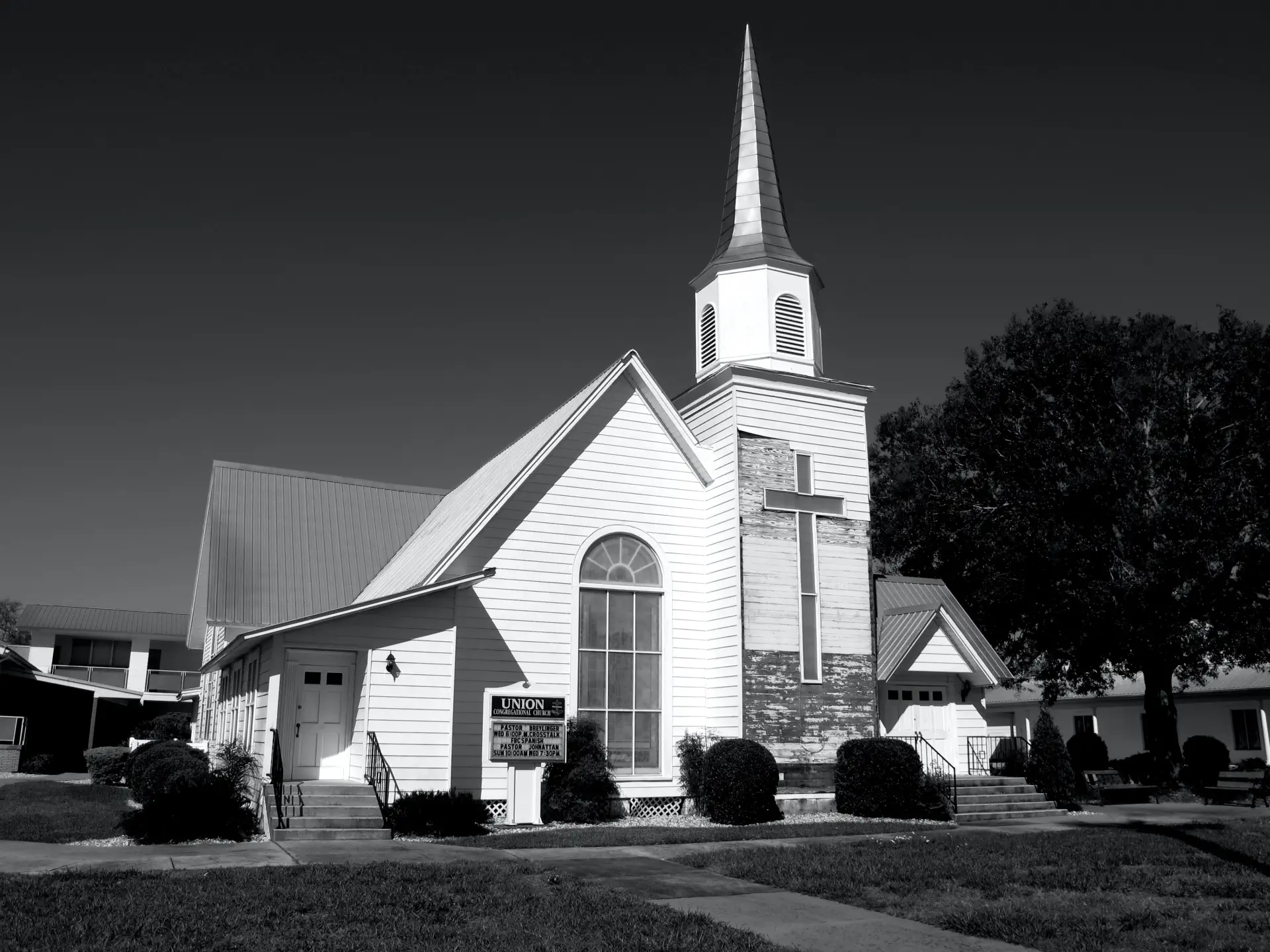Maintaining Godly Standards Amid Cultural Decay
In the Christian West we stand at a crossroads. We are watching hundreds of churches leave the United Methodists and others grapple with the inroads that modern culture is making in traditional Christendom. Christian standards are under attack amid todays rampant cultural decay. What are we to do as the body in these perilous times and what are we to say of sin as we see many churches capitulate to the demands of the modern woke movement?
This article discuss two things as they relate to our current conditions in the church today:
- Sin and how we as Christians should treat sinners as modeled by Christ.
- The distortion of the principles God has taught us about sin that has allowed Christian churches to embrace a culture of moral relativism as normal.

What is Sin?
There are a lot of things we can do that are sinful. Growing up in the church and attending Sunday school regularly I learned about lying, cheating, stealing and harming others as some of the regular things we as young people might be guilty of. We risk missing the point about sin when we focus on list of potential sins – we need to focus on sin itself. But just what is sin? The Oxford dictionary defines it this way:
An immoral act considered to be a transgression against divine law.
The Oxford dictionary
In the Bible sin is described as transgression (or breaking) of the law of God (1 John 3:4). It is also described as rebellion against God (Deuteronomy 9:7; Joshua 1:18) and finally it is described as falling short or missing the mark (John 8:21); which is to say failing to live righteously. Of course righteousness is out of our grasp as humans – as Paul reminds us in Romans 3:10:
and Romans 3.23:
We sin when we put our will – the things we want to do – ahead of God’s will – the things He tells us to do. We do this in action, speech and thought (Matthew 5:27–28).
Sin is not a Greek word meaning “to miss the mark” as many have espoused. The Greek word used in Luke 1:77; John 1:29; 1 John 3:4 which means “to miss the mark” is hamartia. In Greek this means failure. These does not appear to be any Greek history or texts that link this word to archery. It is true that the missing the mark in archery serves as a good word picture. Unfortunately, it does not seem to hold true that this Greek word is a term used in archery. Source
We deceive ourselves if we think that somehow as Christians we are immune from sinning (1 John 1:8). We all sin. 1 John 1:9 calls us to deal with our sin by confessing it. James 4:8-9 calls us to treat sin in our lives as a cause for mourning and to repent from that sin. Repentance is critical, as this is the reversing of one’s course; the choosing to turn from what you were doing. The word we translate as “repentance” is the Greek word “metanoia” which means “a change of mind, as it appears to one who repents, of a purpose he has formed or of something he has done.” Confession and repentance are both necessary as we live out the Christian life in a broken and sinful world to insure we remain in right communion with God.
Jesus is clear in Matthew 7:3-5 that we must deal with our own sins before we can ever hope to discuss with our “brother” his own sins:
I have observed in the body, and have been guilty myself, of pointing to sins we would personally never commit and calling out those involved in those sins; labeling them “sinners” as if we have never sinned ourselves. We must be very careful here. God does not quantify sin. It is all sin. Any sin is enough to separate us from God if not covered by the blood of Jesus. To consider an adulterer’s sin worse than my own covetousness or lying is hypocrisy in its worst form. It’s all sin.
Collision of Sanctification and Society
This is where the cross roads of culture, life styles, moral relativism and sin seem to collide in the church today. What are we to do with openly sinful, unrepentant people in the church? How are we to respond to a culture that pushes in on the church demanding that we condone sinful behavior?
In order to address that we have to first separate culture from the individual. We must be certain not to paint the individual with the cultural branding that is pressed on them, even should they choose to claim that branding openly. People are more than the sum of their actions and behaviors. They are God’s creation in the image of God, someone worth loving and caring for. Jesus showed us this when, over and over, he chose to eat with, talk to and welcome the most despised “sinners” of that time – prostitutes, tax collectors and adulterers.
Jesus knew something we might be forgetting – that the only way to reach the lost and the sinful, and redeem them for the Kingdom was to actually be among them – where they were. The message Jesus brought was not reproachful but a loving delivery of the Word of God and the promise of the Kingdom. He did not condone the choices these people had made, but lovingly offered them an alternative – to embrace His grace and forgiveness and be part of that Kingdom.
In our churches today we have people who are making choices that run counter to God’s law. We call that sin. They are choosing life styles that are sinful, whether living with someone out of wedlock or practicing a gay lifestyle or living in addiction. Paul has this to say to his son in the faith Timothy about this very thing in 1 Tim 1:8-11:
Some of these people breaking God’s law feel justified in the choices they are making because the culture says these things are ok. In fact, the culture celebrates many of these things and tells us to be the person we believe we are. There is an implication that God should not condemn these practices either. It’s as if some think God will somehow be willing to relax His laws and change His standards to match the times.
Nothing could be further from the truth. God does not change. In Malachi 3:6a God says of himself:
He does not care what the current culture says – He has established His law since before time and it is also unchanging. As such God still condemns sin.
Sin is Rebellion of the Heart
When we choose our own way over God’s way we are sinning against God. We are doing exactly what Satan did when he rebelled against God (Isaiah 14:12-14). In essence we are saying to God – to his face – “My way is better; I will do it my way”. This is what the Devil did the day he sinned. Look at home many times Satan says “I will” in the passage from Isaiah – effectively elevating this will over that of God’s:
O Day Star, son of Dawn!
How you are cut down to the ground,
you who laid the nations low!
You said in your heart,
‘I will ascend to heaven;
above the stars of God
I will set my throne on high;
I will sit on the mount of assembly
in the far reaches of the north;
I will ascend above the heights of the clouds;
I will make myself like the Most High.’
Lucifer was a spectacular angel assigned with the job of reflecting God’s glory back to God. It was the highest honor in heaven, but it was not enough for him. That day Satan declared he would be greater than God asserting his will over the Almighty’s. This form of rebellion had an extreme price as on that day he was cast from heaven and his heart was fully corrupted! As a created being we too know, as Satan learned, that elevation of our will over God’s will is the essence of sin.

How Are We to Treat The Lost Sinner?
What are we to do when we encounter people who have chosen their own will over God’s and live in perpetual sin? We must do what Jesus did. He separated the person from their behavior. He said “I love that person – I came to save that person” in spite of the sinfulness that they lived. The sin was a behavior and He hated the behavior because He knew it was an affront to the Heavenly Father.
We are called to love the sinner and to hate the sin. We should welcome the sinner and we should be willing to seek out the sinner and live out Christ in front of them. We are not called to condemn them as people. They are precious in God’s sight. Our love for them needs to be God’s love for them – reaching them where they are and providing for them when they have needs or hurt. However, we must not condone the behavior. Sinfulness whether by choice or ignorance is still sinfulness and we should be willing to address it in love and respect – caring for the person. We must remember – we cannot hope to reach people for the Kingdom by attacking the person.
But what of the culture? Many people choosing sinful life styles do so because the culture says it is acceptable, even celebrated. We in the church are even pressed in hard to accept these cultural norms as right – to condone them. In fact, many western churches have already capitulated and support the cultural norms of today as well as conforming to them (see my article on The Church of Laodicea: The Church at the End of the Age).
While researching this article I ran across a blog post by Bert Montgomery Pastor of University Baptist Church in Starkville, Mississippi titled The Bible Doesn’t Say ‘Love the Sinner, Hate the Sin.’ Anywhere.. I am sure our brother means well, and is hoping to heal perceived wounds with in certain communities, however this sentiment is neither Biblical nor helpful. We need to be helping people understand that there is a moral imperative set by God, and when we violate it we are in sin. While it is true that the words “love the sinner, hate the sin” do not appear verbatim in the Bible; There is no denying that Jesus clearly intended, by His actions, to reflect this very concept. In Mark 2:16-17 we read:
Jesus choice to eat with tax collectors and sinners is a choice to associate and love the person. Clearly he could not love the sin – He was God incarnate and was no less able to embrace sin than His Father. He compares the sinful behavior, not the people, to an illness. Those who are ill need to be healed and He was offering that healing. It was in the form of grace and forgiveness from sin – a personal choice, a behavior. Thus we conclude that behaviors and the person are two separate things. Jesus clearly thought so as well. We are called to love the person. We are called to condemn the sinful behavior.
Our Culture in Decay
Our culture choses not just to accept sinful behavior, but to glorify it. The most recently development has been the public shaming of those who refuse to affirm it. The church is in the cross hairs of those promoting this glorification as the church is willing to call this behavior what it is: sin. Those churches which capitulate are hailed as virtuous and promoted as the model for the more conservative bodies that hold to the whole counsel of God (Acts 20:27).
Most recently there has arisen, in some churches that embrace the lies of our current culture, the “Sparkle Creed”. This heretical creed, that has found its way into modern churches and has been publicly professed, reads like this:
I believe in the non-binary God whose pronouns are plural.
Sparkle Creed
I believe in Jesus Christ, their child, who wore a fabulous tunic and had two dads and saw everyone as a sibling-child of God.
I believe in the rainbow Spirit, who shatters our image of one white light and refracts it into a rainbow of gorgeous diversity.
I believe in the church of everyday saints as numerous, creative, and resilient as patches on the AIDS quilt, whose feet are grounded in mud and whose eyes gaze at the stars in wonder.
I believe in the calling to each of us that love is love is love, so beloved, let us love.
I believe, glorious God. Help my unbelief.
Amen.”
How far the saints have fallen to literally deny who Jesus is, to deny His deity and to so drastically distort the character of God. If you are familiar with the Apostles Creed you will recognize how the “sparkle creed” attempts to emulate that great text while offering nothing of substance. I am reminded to the words of Paul when reading this:
Therefore God also gave them up to uncleanness, in the lusts of their hearts, to dishonor their bodies among themselves, who exchanged the truth of God for the lie, and worshiped and served the creature rather than the Creator, who is blessed forever. Amen.
For this reason God gave them up to vile passions. For even their women exchanged the natural use for what is against nature. Likewise also the men, leaving the natural use of the woman, burned in their lust for one another, men with men committing what is shameful, and receiving in themselves the penalty of their error which was due. Romans 1:22-27 (NKJV)
Paul clearly zeros in on the common sexual practices of the Greeks and Romans of the time. They had many temples to gods and goddesses which celebrated the most perverse sexual and immoral acts which the people practiced in “worship”, often openly in the sight of others. This was the cultural norm of the time. Those who participated surely looked unapprovingly on the newly formed and growing church of the time for failing to conform to those norms. In God’s domain sexual sins are worthy of particular attention, as they are not just sins against God, but sins against the individual as well. To the Roman Christians Paul said in Romans 12: 1-2:
To be conformed to the current culture and to be practicing the sinful ways they deem right is a perversion of the Christian life for those who call themselves followers of Christ. We are called to obedience to the law of God, which is a higher standard of living in Christ than that presented by the culture around us. We must therefore resist the siren call to compromise our commitment to God’s law in the name of getting along and being more friendly to the culture around us. We are therefore called to be salt and light to the world (Matthew 5:13-16). We cannot do that if we look just like the world.
The Perils of Making Friends With The World
Those churches and bodies that have compromised their ideals and beliefs, making friends with the world, are leading many poor souls to utter destruction. Don’t be misled; It is not just sexual immorality that is plaguing our churches. Paul is clear that many other sins run contrary to the will of God and we are just as likely to be condoning these as the obvious sexual sins that our culture celebrates. Paul continues in Romans 1:28-32:
Did you read that? Read it again. These people (we might be among them) who are condoning sin, who are appropriating the worldly culture around them, and even promoting it, know the righteous judgement of God. It is written on their hearts and in their souls. What is more – Paul tells us that not only do those who practice these things deserve death, but so do those who approve.
That is why it matters what the body of Christ condones. We must not be accomplices in the sin of others. We must not allow the culture to invade our church bodies and our homes with our approval – whether explicit or implicit. Such consent ties us to those promoting sinful ways and can result in death. These are heavy words that we need to consider carefully. While we may be saved personally from the final death, our approval of these ways may result severe punishment, even in our being removed from this earth before our time. Consider the words of Jesus regarding the vine dresser in John 15:1-5:
I am the vine; you are the branches. If you remain in me and I in you, you will bear much fruit; apart from me you can do nothing.
As accomplices in promoting the world’s culture and agenda we most certainly will not be in the will of God and thus we will not be bearing fruit. What does Jesus say – the branch that is not bearing fruit will be cut off. He does not mean we will lose our salvation, but He may decide to minimize the damage to ourselves and his church by removing us for the earth. These are the most serous of words.

So what should we do about the culture of today and its insistence on being validated and condoned at all costs. As Christians we must push back. We must hold the body of Christ to a higher standard and not allow it to conform to this world. We may find ourselves canceled – but it would be better to be canceled by people than be canceled by God!
References:
Peter Smith. July 6, 2023. United Methodists lose one-fifth of US churches in schism driven by growing defiance of LGBTQ bans.
John Meakin. Mar 30, 1997. The Concepts of Sin in the New Testament.
Alyssa Roat. Dec. 18 2020. What Is the Meaning of Metanoia and Its Biblical Significance?
Bert Montgomery. Apr 1, 2019. The Bible Doesn’t Say ‘Love the Sinner, Hate the Sin.’ Anywhere.
Kevin DeYoung. Mar 4, 2014. Jesus, Friend of Sinners: But How?




